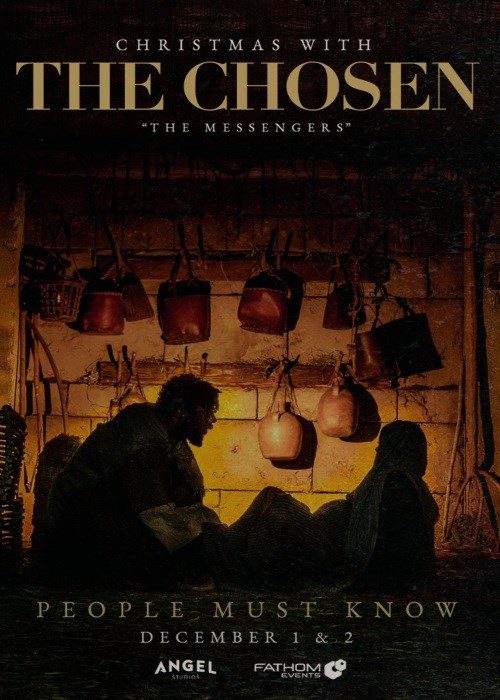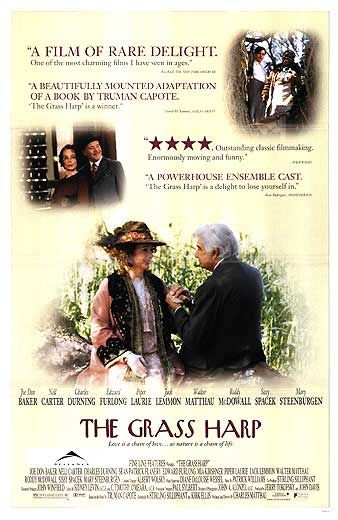
| None | Light | Moderate | Heavy | |
|---|---|---|---|---|
| Language | ||||
| Violence | ||||
| Sex | ||||
| Nudity |
Content:
(Pa, V, M) Pagan worldview with implied New Age idea of hearing spirits in the wind; implied suicide; and, negative & hypocritical representation of the ministry
More Detail:
THE GRASS HARP is a childhood reflection of Collin Fenwick as he reminisces about the loss of his mother, the suicide of his father and his stay with his father’s cousins, Verena & Dolly. Dolly gathers herbs, wildflowers and odd roots for the manufacture of her secret Dropsy cure. Verena owns half the town and runs the other half by intimidation. A friendship forms between Collin and Miss Dolly. This relationship is challenged by Miss Verena with the introduction of a Chicago salesman who promises to market Miss Dolly’s “cure.” When Dolly refuses to divulge her secret recipe, Verena becomes vengeful forcing Dolly and Collin to run away to the woods.
THE GRASS HARP meanders all over the place. There is little focus to the story and the script doesn’t draw in the audience, progressing at a laborious pace. The spirituality of the film is constantly confused with a crooked, philandering, traveling evangelist and several overtly stereotypical church hypocrites. The actual grass harp is Miss Dolly’s description of hearing voices of the wind through the high grass and the branches of the willow tree. It gives the film just a touch of spiritism. Apart from the confusing spiritual message of the film, the script lacks sufficient punch to create an engrossing story.
THE GRASS HARP meanders all over the place. There is little focus to the story and the script doesn’t draw in the audience, progressing at a laborious pace. The spirituality of the film is constantly confused with a crooked, philandering, traveling evangelist and several overtly stereotypical church hypocrites. The actual grass harp is Miss Dolly’s description of hearing voices of the wind through the high grass and the branches of the willow tree. It gives the film just a touch of spiritism. Apart from the confusing spiritual message of the film, the script lacks sufficient punch to create an engrossing story.


 - Content:
- Content: 




